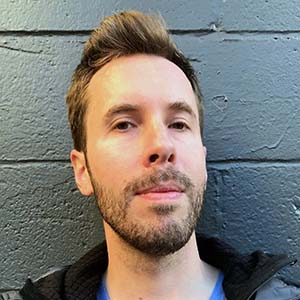An emotional rollercoaster. That’s how folks sometimes describe Terra.do’s 12-week Learning for Action course. Since 2020, thousands of people from dozens of countries have graduated from LFA – and it’s often proved a transformative experience, setting them up to shift their work into climate roles or step up climate action in their communities and homes.
Notably, this is true not just for engineers, software pros, and policy wonks but also storytellers, educators, and artists. Indeed, among our graduates is the artist Nicole Kelner, who decided to illustrate this “emotional rollercoaster” idea in watercolor.

Of course, we strive to support fellows throughout and after the fellowship, but you’ve probably noticed that climate change is not exactly a sun-dappled picnic well-suited for the faint of heart. It can feel overwhelming. The science is daunting, the impacts terrifying. It can be hard to discern which solutions are most worthwhile. Facing this reality makes for a wild ride.
This is one reason the Learning for Action program exists: to help newcomers navigate the complexity, and the anxiety, that comes with taking on climate change – and move forward alongside a global community of like-minded peers. New fellows often say they feel scared and helpless. They graduate 12 weeks later feeling inspired and empowered.
We love how Nicole captures this visually. Let’s zoom in closer on her illustration for us.
1. Am I too late? What can I do?
People often arrive at Terra.do having known and vaguely worried about the climate crisis for some time. They want to do something but don’t always know where this journey will lead.
This stage equates to walking through the turnstile at a theme park or fair.
In lieu of getting strapped in before the ride starts, you’re getting set up to view our live classes, communicate with instructors and other fellows, and dig into async reading, videos, and assignments. The pre-ride hype, in our case, might come in the form of a keynote from a renowned climate speaker like, say, Mary Annaïse Heglar, Bill McKibben, Katharine Hayhoe, or David Roberts.
2. How bad is it… ?
Folks sometimes have the impression humankind has blown a critical deadline – that it’s somehow too late for climate action to make a difference.
The reality isn’t quite so all-or-nothing. Climate change is already here, yet there is so much left to fight for. Understanding this at a granular level requires some context, so our first few classes unpack the basics of greenhouse gases, scientific modeling, and how we know what we know about global heating.
In rollercoaster terms, this is akin to an initial climb that affords riders time to wonder, How high up will this ride go? How fast? We try not to keep you in suspense for long, though.
3. Climate change is scary!
As we turn to the impacts of the climate crisis, the ride suddenly feels very high up and very fast indeed!
The planet has been getting hotter for decades, and this has already made the world a more dangerous place as extreme weather events have grown more frequent and severe. The impacts, from rising seas to increasing wildfires to plunging biodiversity, are stomach-turning and demand action.
We’re all on this ride together. Hold on tight.
4. Phew! Having others here helps.
A rollercoaster ride is a collective experience. Some people might reach for the hand of a partner or family member, while others take solace in knowing at least they don’t seem more freaked out than anyone else – or not by much, anyway.
By this point in Learning for Action, you’re more than a month into the course, and you’re building relationships with others in your cohort. As challenging as climate change is to confront, it helps to regularly spend time with others who are also keen to do more about it.
That need for a climate community is a key part of why Terra.do exists.
5. There are so many ways to take on this problem.
As the rollercoaster ride winds down, you notice yourself breathing for the first time in a while. Your shoulders drop. People around you are… smiling? The fear gives way, perhaps to exhilaration, and you find yourself thinking about what you’ll do next. You feel capable.
Tackling climate change takes all kinds of people. By this point in the program, you and the peers you’ve met have a newfound understanding of the meaningful part your skills can play.
6. We have work to do!
No one said it would be easy to stop the planet from getting hotter while protecting the vulnerable. But having survived the emotional ups and downs of studying and discussing the problem for 12 weeks while unpacking key solution areas, you know better than most that this is still doable.
And you know that you’re not alone, thanks to a network of skilled contacts who share your dedication to climate action.
About the artist

Again, our thanks to artist and Terra.do alum Nicole Kelner for the illustration! A New Yorker, Nicole graduated from our Learning for Action course in early 2024 – part the “Gorillas” cohort, for those in the know. She uses her playful visuals to communicate complex climate topics and has also worked for clients like Harvard University, The Guardian, and the U.S. Department of Energy.
Among her other projects, she’s created a coloring book about clean energy called Electrify Everything. Before that, she co-founded and sold a program to teach kids how to code.

